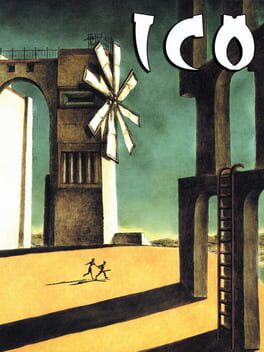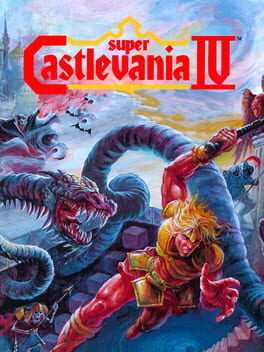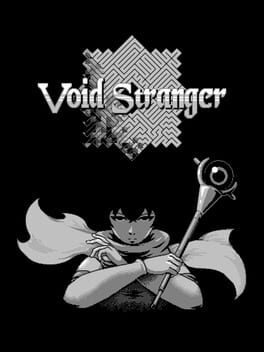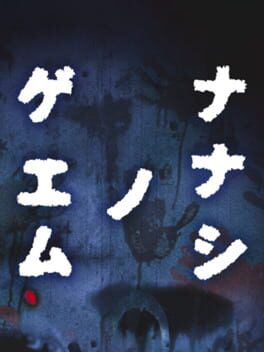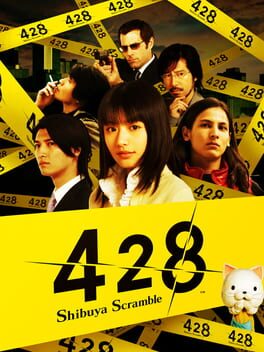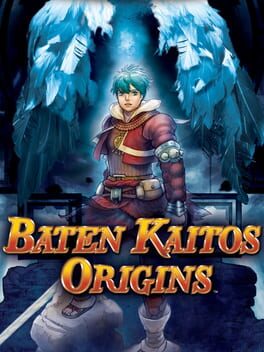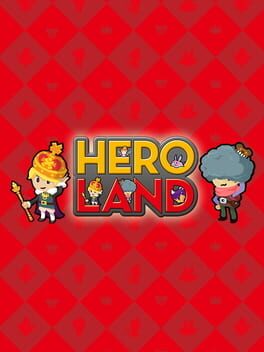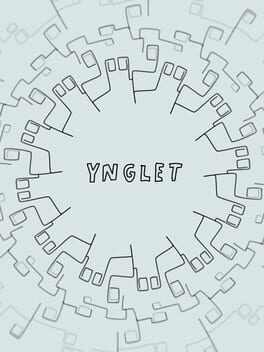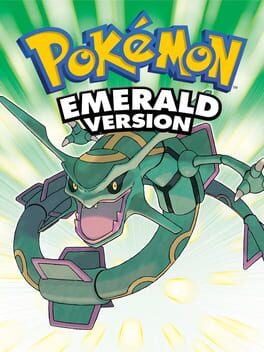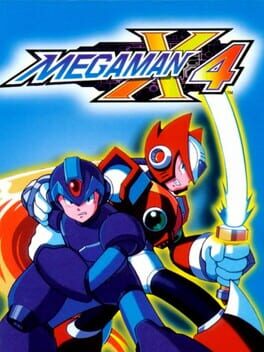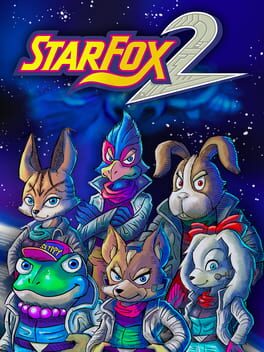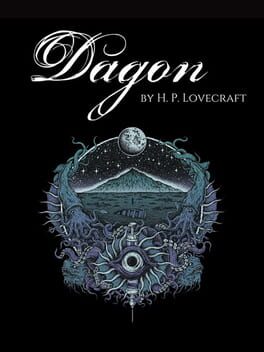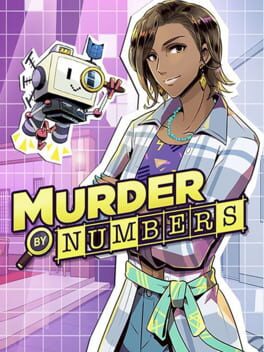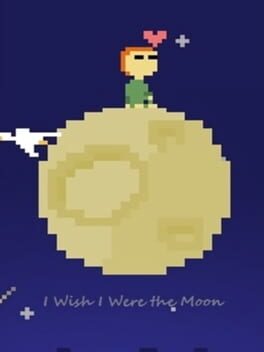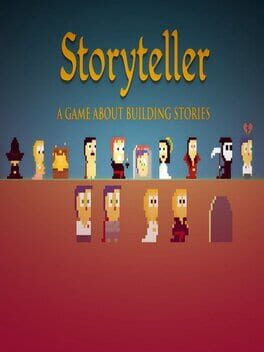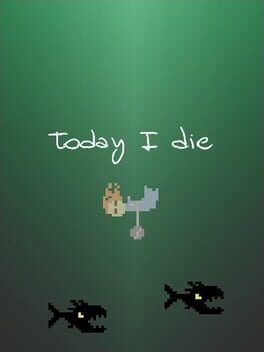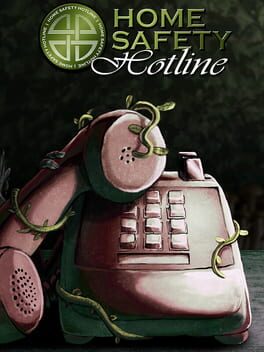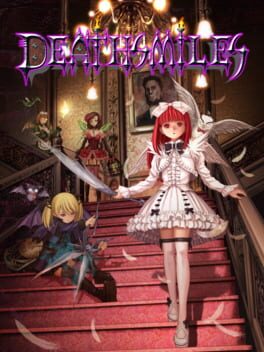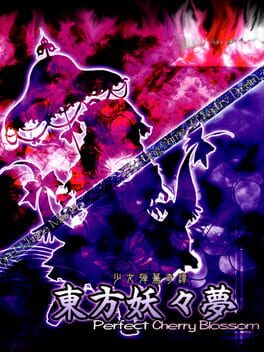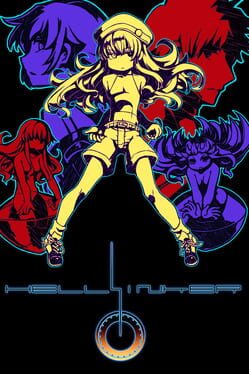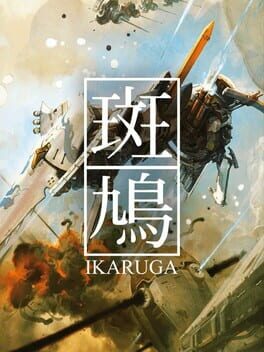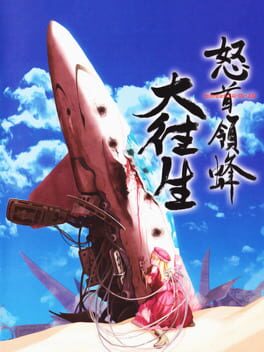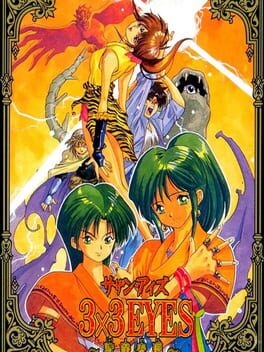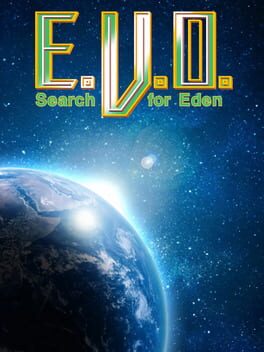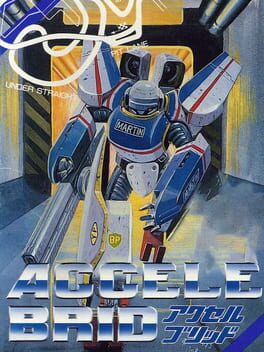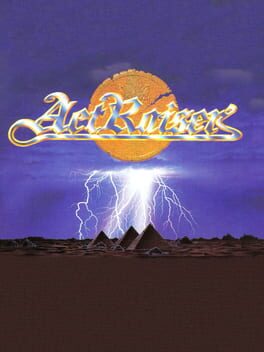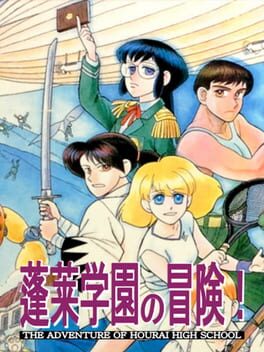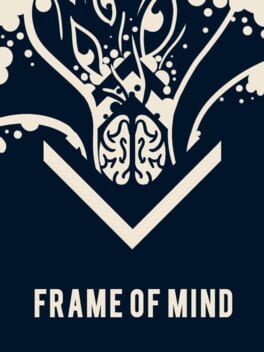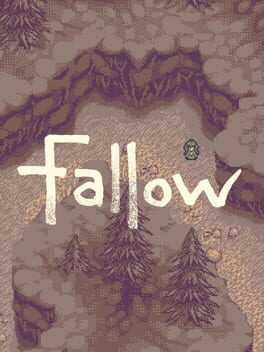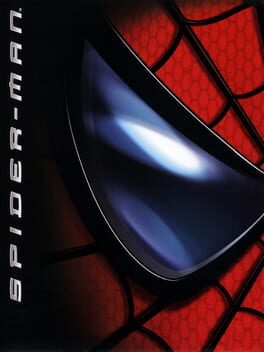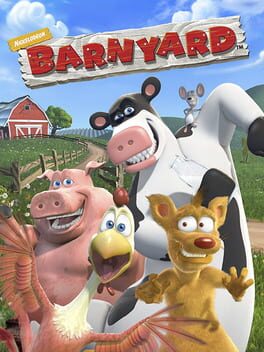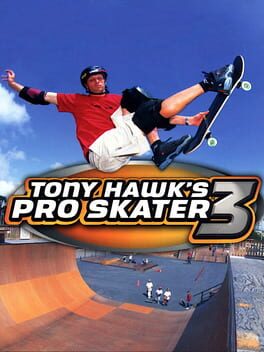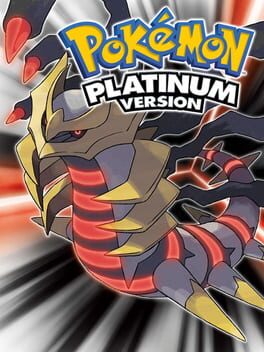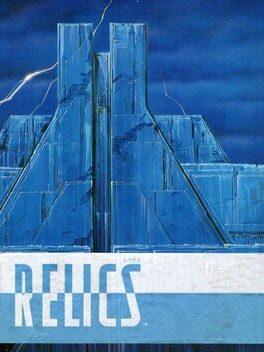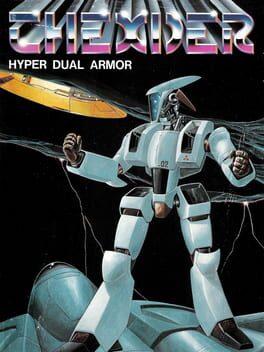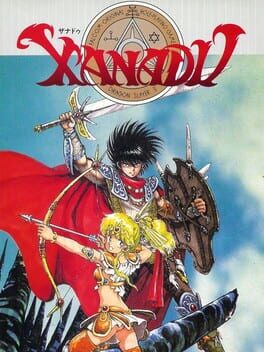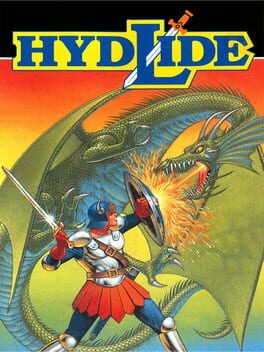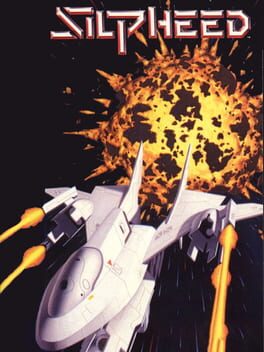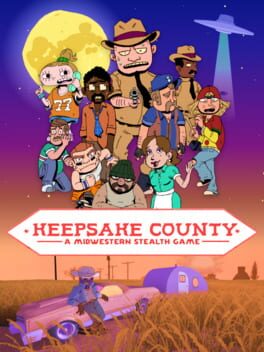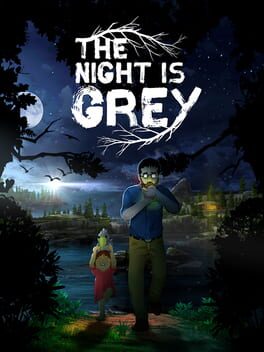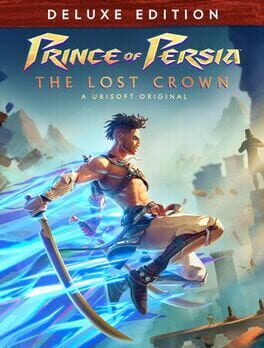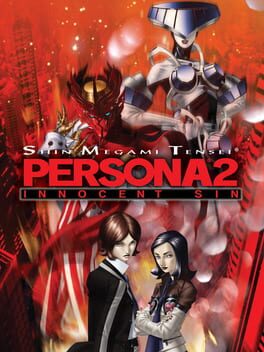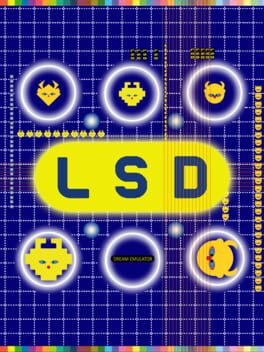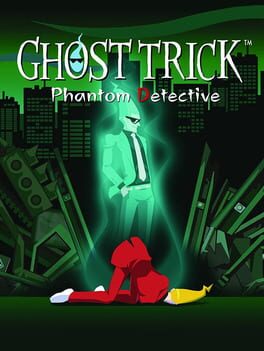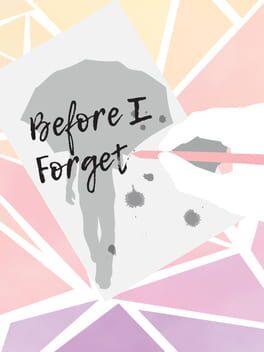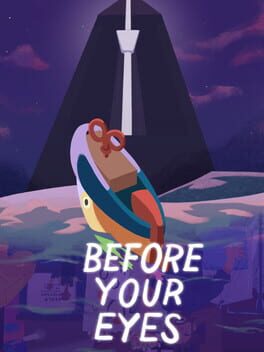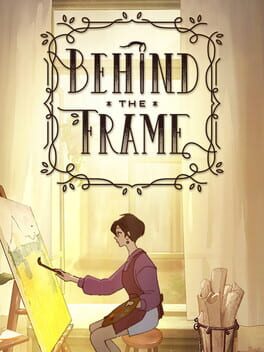9 reviews liked by lockstepper
Ico
2012
Ico is the type of game I dread to play, critically acclaimed, landmark classic of the medium, influenced various games and designers I love. I dread playing those because of a fear I have, a fear that's come true : I don't like ICO, in fact, I think I might hate ICO. And now I will have to carry that like a millstone around my neck, "that asshole who doesn't like ICO". Its not even really that external disapproval I dread, its the very reputation that causes me to second guess my own sincerely held opinions. I thought I liked minimalism in game design, and cut-scene light storytelling and relationships explored through mechanics but I guess I don't. There's some kinda dissonance, cognitive or otherwise reading reviews by friends and writers I respect and wondering if there's something wrong with me or if I didnt get it or played it wrong or any other similar foolishness that gets bandied around in Internet discussions. "I wish we could have played the same game" I think, reading my mutuals' reviews of ICO. Not in a dismissive asshole way of accusing them of having a warped perception, but moreso in frustration that I didnt have the experience that has clearly touched them and countless others.
But enough feeling sorry for myself/being insecure, what is my problem with ICO exactly? I don't really know. Genuinely. I wasnt even planning on writing a review originally because all it would come down to as my original unfiltered reaction would be "Playing it made me miserable". Thankfully the upside of minimalism in game design is that its easier to identify which elements didnt work for me because there are few in the game. I think the people who got the most out of ICO developed some kind of emotional connection to Yorda, and thats one aspect which absolutely didn't work for me. As nakedly "gamey" and transparently artificial as Fallout New Vegas' NPCs (and Skyrim and F3 etc) locking the camera to have a dialogue tree, they read to me as infinitely more human than the more realistic Yorda; for a few reasons. Chief among them is that despite some hiccups and bugs the game is known for, you are not asked to manage them as a gameplay mechanic beyond your companions and well, my main interaction with Yorda was holding down R1 to repeatedly yell "ONG VA!" so she'd climb down the fucking ladder. She'd climb down, get halfway through and then decide this was a bad idea and ascend again.
ICO has been to me a game of all these little frustrations piling up. Due to the nature of the puzzles and platforming, failing them was aggravating and solving them first try was merely unremarkable. It makes me question again, what is the value of minimalism genuinely? There was a point at which I had to use a chain to jump across a gap and I couldnt quite make it, I thought "well, maybe theres a way to jump farther" and started pressing buttons randomly until the circle button achieved the result of letting me use momentum to swing accross. Now, if instead a non-diegetic diagram of the face buttons had shown up on the HUD instead what would have been lost? To me, very little. Sure, excessive direction can be annoying and take me out of the game, but pressing buttons randomly did the same, personally. Nor did "figuring it out for myself" feel particularly fulfilling. Thats again what I meant, victories are unremarkable and failures are frustrating. The same can be said for the combat which, honestly I liked at first. I liked how clumsy and childish the stick flailing fighting style was, but ultimately it involved hitting the enemies over and over and over and over again until they stopped spawning. Thankfully you can run away at times and rush to the exit to make the enemies blow up but the game's habit of spawning them when you're far from Yorda or maybe when she's on a different platform meant that I had to rely on her stupid pathfinding to quickly respond (which is just not going to happen, she needs like 3 business days to execute the same thing we've done 5k times already, I guess the language barrier applies to pattern recognition as well somehow) and when it inevitably failed I would have to jump down and mash square until they fucked off.
I can see the argument that this is meant to be disempowering somehow but I don't really buy it. Your strikes knock these fuckers down well enough, they just keep getting back up. Ico isnt strong, he shouldnt be able to smite these wizard of oz monkeys with a single swing, but then why can they do no damage to ICO and get knocked down flat with a couple swings? Either they are weak as hell but keep getting remotely CPRd by the antagonist or they're strong but have really poor balance. In the end, all I could really feel from ICO was being miserable. I finished the game in 5 hours but it felt twice that. All I can think of now is that Im glad its done and I can tick it off the bucket list. I am now dreading playing shadow of the colossus even harder, and I don't think I ever want to play The Last Guardian, it just looks like ICO but even more miserable. I'm sure I've outed myself as an uncultured swine who didnt get the genius of the experience and will lose all my followers but I'm too deflated to care. If there is one positive to this experience is that I kept procrastinating on finishing the game that I got back into reading. I read The Name of the Rose and Rumble Fish, pretty good reads. Im going to read Winesburg Ohio next I think.
But enough feeling sorry for myself/being insecure, what is my problem with ICO exactly? I don't really know. Genuinely. I wasnt even planning on writing a review originally because all it would come down to as my original unfiltered reaction would be "Playing it made me miserable". Thankfully the upside of minimalism in game design is that its easier to identify which elements didnt work for me because there are few in the game. I think the people who got the most out of ICO developed some kind of emotional connection to Yorda, and thats one aspect which absolutely didn't work for me. As nakedly "gamey" and transparently artificial as Fallout New Vegas' NPCs (and Skyrim and F3 etc) locking the camera to have a dialogue tree, they read to me as infinitely more human than the more realistic Yorda; for a few reasons. Chief among them is that despite some hiccups and bugs the game is known for, you are not asked to manage them as a gameplay mechanic beyond your companions and well, my main interaction with Yorda was holding down R1 to repeatedly yell "ONG VA!" so she'd climb down the fucking ladder. She'd climb down, get halfway through and then decide this was a bad idea and ascend again.
ICO has been to me a game of all these little frustrations piling up. Due to the nature of the puzzles and platforming, failing them was aggravating and solving them first try was merely unremarkable. It makes me question again, what is the value of minimalism genuinely? There was a point at which I had to use a chain to jump across a gap and I couldnt quite make it, I thought "well, maybe theres a way to jump farther" and started pressing buttons randomly until the circle button achieved the result of letting me use momentum to swing accross. Now, if instead a non-diegetic diagram of the face buttons had shown up on the HUD instead what would have been lost? To me, very little. Sure, excessive direction can be annoying and take me out of the game, but pressing buttons randomly did the same, personally. Nor did "figuring it out for myself" feel particularly fulfilling. Thats again what I meant, victories are unremarkable and failures are frustrating. The same can be said for the combat which, honestly I liked at first. I liked how clumsy and childish the stick flailing fighting style was, but ultimately it involved hitting the enemies over and over and over and over again until they stopped spawning. Thankfully you can run away at times and rush to the exit to make the enemies blow up but the game's habit of spawning them when you're far from Yorda or maybe when she's on a different platform meant that I had to rely on her stupid pathfinding to quickly respond (which is just not going to happen, she needs like 3 business days to execute the same thing we've done 5k times already, I guess the language barrier applies to pattern recognition as well somehow) and when it inevitably failed I would have to jump down and mash square until they fucked off.
I can see the argument that this is meant to be disempowering somehow but I don't really buy it. Your strikes knock these fuckers down well enough, they just keep getting back up. Ico isnt strong, he shouldnt be able to smite these wizard of oz monkeys with a single swing, but then why can they do no damage to ICO and get knocked down flat with a couple swings? Either they are weak as hell but keep getting remotely CPRd by the antagonist or they're strong but have really poor balance. In the end, all I could really feel from ICO was being miserable. I finished the game in 5 hours but it felt twice that. All I can think of now is that Im glad its done and I can tick it off the bucket list. I am now dreading playing shadow of the colossus even harder, and I don't think I ever want to play The Last Guardian, it just looks like ICO but even more miserable. I'm sure I've outed myself as an uncultured swine who didnt get the genius of the experience and will lose all my followers but I'm too deflated to care. If there is one positive to this experience is that I kept procrastinating on finishing the game that I got back into reading. I read The Name of the Rose and Rumble Fish, pretty good reads. Im going to read Winesburg Ohio next I think.
Super Castlevania IV
1991
It's fine.
When folks decry Super for being a blasphemous take on the tried-and-true formula of Classicvania with it's eight-directional whipping, they're absolutely justified in their thought. It takes away the strategical element that made us love the thinking person's aspect behind the careful movement. An entire sub-system becomes a complete afterthought, with them only being convenient at hyper-specific instances rather than something that was there to truly compliment our whipping prowess to help with entire courses and encounters. Taking a death becomes less threatening as losing a sub-weapon essentially turns into a very minor slap on the wrist at worst, as an empty sub-weapon box may as well had been what it felt like the entire time we had been playing.
It's an ordeal that can't be simply ignored in a self-imposed challenge like the charged mega buster in every NES era Mega Man past the third game, and you're left with Simon being able to skillfully twirl his whip better than any other Belmont before or after him. Perhaps Simon was always meant to be presented as the most headstrong and bullish of the family? Characterization through mechanics? It remains to be seen if that was the intent, or if it was supposed to be an "evolution". An evolution that no doubt would've made this entry an even bigger target of contempt, especially if the stage design would continue to fail to compliment the new system beyond smattering a few bats flying down from odd angles, and if we could still easily thwart Axe Armors from below the floor they're standing on. Luckily for all of us however, this would be the only time such a new take would be used, and instead of being a deplorable turning point for the series, it is in fact unique and now it's own experience.
A retelling of the original that shows Simon's entire journey from beyond Devil's Castle, braving the horrors that crept from the onset of the horrid manifestation of Dracula's power within what was once a peaceful forest accompanied by strings of a violin within a purple and grey console. A walk through the caves with beautiful woodwind arrangements, and mesmerizing illusions brought upon by the seventh mode conjured by unknown forces presumably under the control of the dark lord himself. The approach to familiar scenery from the beginning of our original story of the legendary quest partnered by intimidating percussion for nightmares to come. We make our way through the retold portions of Simon's tale, and upon completion hear echoes of our past one last time before we must move on to beginnings of a new generation. The slow haunting keys of an organ cue the entry of Dracula to the main stage. Simon's Theme of which signaled the entrance of the hero at the very start, returns once again at the final moment the Count is nearing his defeat to build the audience's tension to the epic conclusion of the adventure. The orchestra plays to the agonizing death of the villain, and rings in daylight's victory over the darkness.
The fabled saga, retold and reimagined with added flare of chilling drama and suspense. Not to replace the original, but to remember it through a more cinematic lens. Forever immortal.
When folks decry Super for being a blasphemous take on the tried-and-true formula of Classicvania with it's eight-directional whipping, they're absolutely justified in their thought. It takes away the strategical element that made us love the thinking person's aspect behind the careful movement. An entire sub-system becomes a complete afterthought, with them only being convenient at hyper-specific instances rather than something that was there to truly compliment our whipping prowess to help with entire courses and encounters. Taking a death becomes less threatening as losing a sub-weapon essentially turns into a very minor slap on the wrist at worst, as an empty sub-weapon box may as well had been what it felt like the entire time we had been playing.
It's an ordeal that can't be simply ignored in a self-imposed challenge like the charged mega buster in every NES era Mega Man past the third game, and you're left with Simon being able to skillfully twirl his whip better than any other Belmont before or after him. Perhaps Simon was always meant to be presented as the most headstrong and bullish of the family? Characterization through mechanics? It remains to be seen if that was the intent, or if it was supposed to be an "evolution". An evolution that no doubt would've made this entry an even bigger target of contempt, especially if the stage design would continue to fail to compliment the new system beyond smattering a few bats flying down from odd angles, and if we could still easily thwart Axe Armors from below the floor they're standing on. Luckily for all of us however, this would be the only time such a new take would be used, and instead of being a deplorable turning point for the series, it is in fact unique and now it's own experience.
A retelling of the original that shows Simon's entire journey from beyond Devil's Castle, braving the horrors that crept from the onset of the horrid manifestation of Dracula's power within what was once a peaceful forest accompanied by strings of a violin within a purple and grey console. A walk through the caves with beautiful woodwind arrangements, and mesmerizing illusions brought upon by the seventh mode conjured by unknown forces presumably under the control of the dark lord himself. The approach to familiar scenery from the beginning of our original story of the legendary quest partnered by intimidating percussion for nightmares to come. We make our way through the retold portions of Simon's tale, and upon completion hear echoes of our past one last time before we must move on to beginnings of a new generation. The slow haunting keys of an organ cue the entry of Dracula to the main stage. Simon's Theme of which signaled the entrance of the hero at the very start, returns once again at the final moment the Count is nearing his defeat to build the audience's tension to the epic conclusion of the adventure. The orchestra plays to the agonizing death of the villain, and rings in daylight's victory over the darkness.
The fabled saga, retold and reimagined with added flare of chilling drama and suspense. Not to replace the original, but to remember it through a more cinematic lens. Forever immortal.
Void Stranger
2023
Necesitaría mucho más que unas pocas líneas para intentar describir los altibajos emocionales que Void Stranger me ha provocado. Incomprensión e incomodidad, interés y fascinación, rabia y melancolía, alegría y asombro, y finalmente, un tono agridulce al que me alegro de haber jugado. Por cada piso que pude terminar por mi cuenta, hubo tres que tuve que buscar la solución online; por cada mural que descifré, dos que no hubiera entendido jamás; y por cada escena de culpa católica enmarcada en personajes estereotípicos que me hizo apretar los dientes de la indignación, hubo tres que me hicieron sentir que estaba tocando de verdad al autore.
Decimos que los juegos son obras personales de la misma forma que decimos que detrás de cada obra de arte se sobreentiende siempre cierto esfuerzo y horas de trabajo: como una convención comodona, destinada a reafirmar nuestra decisión de dedicar el poco tiempo que tenemos de vida a un arte que seguramente no posea ni la mitad de humanidad que el poema más parco. Con Void Stranger sentí que experimentaba arte y basura a partes iguales, y en ese sentido, es un juego que me ha hecho pensar más que nunca en mi relación con este medio que me ha traído tantas alegrías y tantas, tantas decepciones.
Puedes admirar Void Stranger por la inquina mentalidad puesta a la hora de diseñar según que puzzles, y puedes detestarlo por su tendencia casi obsesiva a la ofuscación, que en más de una ocasión me hicieron querer cortar del todo. También puedes reconocer su intrincada narración, digna de cierta escuela de diseño post-Undertale que pareció tomar como única lección el accidente de Gaster. Pero para mí, lo que tiene valor de esta maraña de modos extra es el hecho de que, al final del día, el mensaje siempre es el mismo, el de la importancia de aprender a amar. En los momentos en que es así de simple, Void Stranger me agarra de verdad, y en los momentos en que deja relucir sus partes más avergonzadas, es cuando me irrita de verdad.
Así que le pongo un 4, porque supongo que un 5 quedaría reservado para los juegos que me afectan a un nivel estrictamente personal o me parecen encapsulaciones ideales de una forma que no siempre sabré explicar, puedo afirmar sin ninguna duda que hay muchas cosas en Void Stranger que no me gustan. Pero no puedo negar que me ha hecho pensar de un modo que pocas obras, irónicamente desde Undertale, lograron.
--------------------------
I would need much more than a few lines to describe the emotional ups and downs that Void Stranger has provoked in me. Incomprehension and discomfort, interest and fascination, anger and melancholy, joy and wonder, and finally, a bittersweet note that I'm glad I had the opportunity to experience. For every floor I was able to finish on my own, there were three I had to look up the solution online for; for every mural I deciphered, two of them I would never have guessed on my own; and for every scene of Catholic guilt framed by stereotypical characters that made me cringe in indignation, there were three that made me feel like I was really reaching the author.
We say that games are personal works in the same way that there's always some effort put behind everything, in the sense that we use to reaffirm our life choice to devote so much of our precious time on Earth to an art form that probably doesn't have as much humanity within it as the shortest poem. With Void Stranger I felt like I was experiencing art and dreck on several occasions, and in that sense, it is a game that has made me think more about my relationship with a medium that has brought me so much joy and yet so much disappointment than many others.
You can admire Void Stranger for its devilish attitude towards puzzle design, and you can loathe it for its almost obsessive tendency to obfuscation, which made me want to quit it many times. You can also recognize its intricate storytelling, worthy of a post-Undertale school of design that took Gaster's accidental fame as its main bullet point. But for me, what's valuable about this mess of a title is the fact that, at the end of the day, the message remains the same: That of the importance of being loved. When it's that simple, is when it grabs me better. And when it's much more dishonest and shameful is when it really irritates me.
So I give it a 4, because I suppose a 5 should be reserved for games that affect me on a very personal level or encapsulate an ideal form of gaming that I'm not always good at explaining. I can state without a doubt that there are many things in Void Stranger that I don't like. But I can't deny that it has made me think in a way that few works, ironically since Undertale, managed to do.
Decimos que los juegos son obras personales de la misma forma que decimos que detrás de cada obra de arte se sobreentiende siempre cierto esfuerzo y horas de trabajo: como una convención comodona, destinada a reafirmar nuestra decisión de dedicar el poco tiempo que tenemos de vida a un arte que seguramente no posea ni la mitad de humanidad que el poema más parco. Con Void Stranger sentí que experimentaba arte y basura a partes iguales, y en ese sentido, es un juego que me ha hecho pensar más que nunca en mi relación con este medio que me ha traído tantas alegrías y tantas, tantas decepciones.
Puedes admirar Void Stranger por la inquina mentalidad puesta a la hora de diseñar según que puzzles, y puedes detestarlo por su tendencia casi obsesiva a la ofuscación, que en más de una ocasión me hicieron querer cortar del todo. También puedes reconocer su intrincada narración, digna de cierta escuela de diseño post-Undertale que pareció tomar como única lección el accidente de Gaster. Pero para mí, lo que tiene valor de esta maraña de modos extra es el hecho de que, al final del día, el mensaje siempre es el mismo, el de la importancia de aprender a amar. En los momentos en que es así de simple, Void Stranger me agarra de verdad, y en los momentos en que deja relucir sus partes más avergonzadas, es cuando me irrita de verdad.
Así que le pongo un 4, porque supongo que un 5 quedaría reservado para los juegos que me afectan a un nivel estrictamente personal o me parecen encapsulaciones ideales de una forma que no siempre sabré explicar, puedo afirmar sin ninguna duda que hay muchas cosas en Void Stranger que no me gustan. Pero no puedo negar que me ha hecho pensar de un modo que pocas obras, irónicamente desde Undertale, lograron.
--------------------------
I would need much more than a few lines to describe the emotional ups and downs that Void Stranger has provoked in me. Incomprehension and discomfort, interest and fascination, anger and melancholy, joy and wonder, and finally, a bittersweet note that I'm glad I had the opportunity to experience. For every floor I was able to finish on my own, there were three I had to look up the solution online for; for every mural I deciphered, two of them I would never have guessed on my own; and for every scene of Catholic guilt framed by stereotypical characters that made me cringe in indignation, there were three that made me feel like I was really reaching the author.
We say that games are personal works in the same way that there's always some effort put behind everything, in the sense that we use to reaffirm our life choice to devote so much of our precious time on Earth to an art form that probably doesn't have as much humanity within it as the shortest poem. With Void Stranger I felt like I was experiencing art and dreck on several occasions, and in that sense, it is a game that has made me think more about my relationship with a medium that has brought me so much joy and yet so much disappointment than many others.
You can admire Void Stranger for its devilish attitude towards puzzle design, and you can loathe it for its almost obsessive tendency to obfuscation, which made me want to quit it many times. You can also recognize its intricate storytelling, worthy of a post-Undertale school of design that took Gaster's accidental fame as its main bullet point. But for me, what's valuable about this mess of a title is the fact that, at the end of the day, the message remains the same: That of the importance of being loved. When it's that simple, is when it grabs me better. And when it's much more dishonest and shameful is when it really irritates me.
So I give it a 4, because I suppose a 5 should be reserved for games that affect me on a very personal level or encapsulate an ideal form of gaming that I'm not always good at explaining. I can state without a doubt that there are many things in Void Stranger that I don't like. But I can't deny that it has made me think in a way that few works, ironically since Undertale, managed to do.
Nanashi no Game
2008
Very disappointing. The premise is good and it has aspects that are well achieved (the low poly style of the 3D environments for example have always been my weak point), but the story is poorly written and full of plot contrivances to make it work. It's also not like it has more to do than read a couple of flat, unpretentiously written lines and walk through a series of long corridors with no puzzles or anything else that makes horror games so good. What I rescue, then, is the visual aspect (except the 2D portraits of the characters), some moments of terror that manage to be well executed (although not truly terrifying) and the general mood of the places we visit within its story.
Despite my low score I recommend the game, not because of how well executed it is, but because of the interesting premise.
Despite my low score I recommend the game, not because of how well executed it is, but because of the interesting premise.
It is an obvious game about connections, with the stories of the various protagonists being interwoven through diverse means. These connections are also a victory of good faith against evil. While the evil plan in the shadows is responsible for causing havoc always one step ahead of all of Shibuya, the player's power to guide everyone into the best course always prevails.
It is not even a subtle push on the characters as they step into dilemmas, it is a force so powerful that it is capable of making arbitrary decisions that can save the day. This is why the game allows itself to indulge constantly in its comedic tone. Including the bad endings. It is not afraid to paint a catastrophe as a mere joke because it knows the situation can be saved, they are a mere pastime of a daydream, or perhaps a nightmare, that could but never will be.
These connections are also implicit in the plot itself. As the climax is reached, all interpersonal conflicts are eventually ironed out to form a cohesive whole. The game, in the midst of these impossible to avoid threads that take place in Shibuya, allows itself to include a plot with a character isolated, both from the physical outside and from his family, and help him reconnect with his loved ones and the world through gestures as simple as an anonymous message on an online pop singer fan forum or a bodyguard (a buffoon in actual fact) put on assignment who nevertheless genuinely cares about his objective, his friend, beyond duty.
It is strange, but each session felt thoroughly pleasant, watching faces intermingle between stories and laughing, somewhat cruelly but harmlessly at heart, at the crossovers as they did not even suspect the weight that their encounters carried. On occasion, the protagonists are ignorant of why or how a decision or a connection would end one way or the other. Using the shield of humor, what really hides behind is a faith in that the schemes of evil cannot overcome an unexplainable and unstoppable goodness.
It is not even a subtle push on the characters as they step into dilemmas, it is a force so powerful that it is capable of making arbitrary decisions that can save the day. This is why the game allows itself to indulge constantly in its comedic tone. Including the bad endings. It is not afraid to paint a catastrophe as a mere joke because it knows the situation can be saved, they are a mere pastime of a daydream, or perhaps a nightmare, that could but never will be.
These connections are also implicit in the plot itself. As the climax is reached, all interpersonal conflicts are eventually ironed out to form a cohesive whole. The game, in the midst of these impossible to avoid threads that take place in Shibuya, allows itself to include a plot with a character isolated, both from the physical outside and from his family, and help him reconnect with his loved ones and the world through gestures as simple as an anonymous message on an online pop singer fan forum or a bodyguard (a buffoon in actual fact) put on assignment who nevertheless genuinely cares about his objective, his friend, beyond duty.
It is strange, but each session felt thoroughly pleasant, watching faces intermingle between stories and laughing, somewhat cruelly but harmlessly at heart, at the crossovers as they did not even suspect the weight that their encounters carried. On occasion, the protagonists are ignorant of why or how a decision or a connection would end one way or the other. Using the shield of humor, what really hides behind is a faith in that the schemes of evil cannot overcome an unexplainable and unstoppable goodness.
Baten Kaitos Origins
2006
The second Baten Kaitos game and a prequel story to the original game. This one was never released in Europe the first time round so the HD remaster on Switch was my first time playing it and the version that forms the basis of this review.
Baten Kaitos Origins takes the foundations laid by the original game and instead of building upon them, decides to simplify things a bit to make for a smoother experience. The battle system is where this can be seen at its most prominent. Like the original game, this game uses a card based battle system where you have a deck of cards and your hand determines what actions you can do during your turn. In Origins things have been simplified to make for a smoother experience. Here we have just one deck of a maximum of 60 cards that all party members pull from. You can build multiple decks and switch them in and out for whatever you feel you need at the time. The cards themselves have also been simplified with each card having a number ranging from 0-6. 0 cards now provide your defence options rather than it being a separate turn, or can provide elemental effects to attacks and stuff like that. The defence cards provide damage reduction for a set amount of attacks and all 0 cards can be used at the start of a turn to kick off a combo. Cards numbered 1-3 are standard attacks while 4-6 require the level meter to be filled to the right level to use and that bar is filled from doing combos.
Combos are built from using the cards in numerical order. You can start with whatever number you like but you can only combo into a card with a higher numerical value than the one you used. The ideal scenario is having a hand that lets you go from 0-6 but it's difficult when each character has their own 0 cards and specials 4-6 cards. Each card you use draws a new one from the deck and you only get a second or so to carry on your combo before your turn ends so you're frantically scanning your hand and planning your attacks before you run out of time.
As you progress through the game you'll end up with a maximum deck of 60 cards, 7 cards in a hand, and the ability to discard more and more cards during a turn. At first I was kinda disappointed with the new battle system as I felt like it removed a lot of the depth of the original system but once I got a hang of it and learned how to do relay combos where characters can continue a previous combo and is doable for all 3 party members, as well as taking advantage of Milly's unique +1 and +2 cards to build even longer combos, I came to appreciate the much faster paced battles and loved seeing how crazy a combo I could build up in a single turn.
Other simplifications this game does is cut your playable cast in half to just 3 characters: Sagi, Guillo, and Milly. Honestly, this was kinda disappointing after having a great time with the cast in Baten Kaitos 1 and felt like an overcorrection when the battle system changes already solved the biggest issue with having so many characters in 1 by cutting out the deck management for each character.
Sagi is an alright character, a very standard Japanese RPG protagonist and unfortunately didn't do much for me.
Guillo is this cool machina who has no filter on what they say and often clashes with Milly who is our feisty kick ass girl of the group. I enjoyed Milly and Guillo a lot but the group didn't do a whole lot for me and honestly felt a little flat and lacking.
Which brings us onto the story for Origins itself. A prequel story set around 20 years before the events of BK1, Sagi ends up being tasked with stopping the Empire machinanising the other continents as well as stopping them collecting the remnants of Malparcio, the evil god they were reviving in the first game. The bulk of the first half of the game is visiting each continent, trying to stop the Empire and falling, and getting a flashback after a remnant of Malparcio is defeated. The flashbacks take Sagi and co back to 1000 years ago and detail the events that lead into the War of the Gods we heard so much about in BK1. The past sections had the more interesting story for me as it was cool learning more about such a huge event spoken about in the first game, the main story felt a little flat, repetitive and uninteresting outside of seeing some cameos from characters in the original game. The fact you gain your whole party very early in the game means that repeating the same core story beats 4 times in a row starts to fall flat very quickly. There's some cool plot twists after that section and I like how the Spiriters are utilised in this game but then so much of the back half of the game feels like optional content that shouldn't be optional. Freeing each continent from machination and wrapping up the War of the Gods scenario (which needs to be done to fight the true final boss) are unvoiced and optional with no real build up to them and it kinda sucks because the pacing and urgency of those situations just falls completely off a cliff when they should've been some of the more epic portions of the game.
And ultimately that's the biggest flaw of Baten Kaitos Origins - it takes the original game and fails to truly build on its foundations, instead spinning its wheels in place and doesn't really go anywhere exciting. What we end up with is a solid enough game that is consistently fine but struggles to hit the highs that the first game did.
Baten Kaitos Origins takes the foundations laid by the original game and instead of building upon them, decides to simplify things a bit to make for a smoother experience. The battle system is where this can be seen at its most prominent. Like the original game, this game uses a card based battle system where you have a deck of cards and your hand determines what actions you can do during your turn. In Origins things have been simplified to make for a smoother experience. Here we have just one deck of a maximum of 60 cards that all party members pull from. You can build multiple decks and switch them in and out for whatever you feel you need at the time. The cards themselves have also been simplified with each card having a number ranging from 0-6. 0 cards now provide your defence options rather than it being a separate turn, or can provide elemental effects to attacks and stuff like that. The defence cards provide damage reduction for a set amount of attacks and all 0 cards can be used at the start of a turn to kick off a combo. Cards numbered 1-3 are standard attacks while 4-6 require the level meter to be filled to the right level to use and that bar is filled from doing combos.
Combos are built from using the cards in numerical order. You can start with whatever number you like but you can only combo into a card with a higher numerical value than the one you used. The ideal scenario is having a hand that lets you go from 0-6 but it's difficult when each character has their own 0 cards and specials 4-6 cards. Each card you use draws a new one from the deck and you only get a second or so to carry on your combo before your turn ends so you're frantically scanning your hand and planning your attacks before you run out of time.
As you progress through the game you'll end up with a maximum deck of 60 cards, 7 cards in a hand, and the ability to discard more and more cards during a turn. At first I was kinda disappointed with the new battle system as I felt like it removed a lot of the depth of the original system but once I got a hang of it and learned how to do relay combos where characters can continue a previous combo and is doable for all 3 party members, as well as taking advantage of Milly's unique +1 and +2 cards to build even longer combos, I came to appreciate the much faster paced battles and loved seeing how crazy a combo I could build up in a single turn.
Other simplifications this game does is cut your playable cast in half to just 3 characters: Sagi, Guillo, and Milly. Honestly, this was kinda disappointing after having a great time with the cast in Baten Kaitos 1 and felt like an overcorrection when the battle system changes already solved the biggest issue with having so many characters in 1 by cutting out the deck management for each character.
Sagi is an alright character, a very standard Japanese RPG protagonist and unfortunately didn't do much for me.
Guillo is this cool machina who has no filter on what they say and often clashes with Milly who is our feisty kick ass girl of the group. I enjoyed Milly and Guillo a lot but the group didn't do a whole lot for me and honestly felt a little flat and lacking.
Which brings us onto the story for Origins itself. A prequel story set around 20 years before the events of BK1, Sagi ends up being tasked with stopping the Empire machinanising the other continents as well as stopping them collecting the remnants of Malparcio, the evil god they were reviving in the first game. The bulk of the first half of the game is visiting each continent, trying to stop the Empire and falling, and getting a flashback after a remnant of Malparcio is defeated. The flashbacks take Sagi and co back to 1000 years ago and detail the events that lead into the War of the Gods we heard so much about in BK1. The past sections had the more interesting story for me as it was cool learning more about such a huge event spoken about in the first game, the main story felt a little flat, repetitive and uninteresting outside of seeing some cameos from characters in the original game. The fact you gain your whole party very early in the game means that repeating the same core story beats 4 times in a row starts to fall flat very quickly. There's some cool plot twists after that section and I like how the Spiriters are utilised in this game but then so much of the back half of the game feels like optional content that shouldn't be optional. Freeing each continent from machination and wrapping up the War of the Gods scenario (which needs to be done to fight the true final boss) are unvoiced and optional with no real build up to them and it kinda sucks because the pacing and urgency of those situations just falls completely off a cliff when they should've been some of the more epic portions of the game.
And ultimately that's the biggest flaw of Baten Kaitos Origins - it takes the original game and fails to truly build on its foundations, instead spinning its wheels in place and doesn't really go anywhere exciting. What we end up with is a solid enough game that is consistently fine but struggles to hit the highs that the first game did.
El juego más moralmente asqueroso que se ha hecho jamás. Trampa para incautos, adormecedor para perezosos, aturdidor para inquietos. Un dragón con piel de cordero que quiere hacernos creer que el videojuego nunca se bastará por sí solo.
----------
The most morally repugnant game ever made. A trap for the unwary, numbing for those who are lazy, stupefying for those who want to change things. A dragon disguised in a cute lamb's skin that wants to make us believe videogames will never be good enough.
----------
The most morally repugnant game ever made. A trap for the unwary, numbing for those who are lazy, stupefying for those who want to change things. A dragon disguised in a cute lamb's skin that wants to make us believe videogames will never be good enough.
Heroland
2018
Work x Work (localized as Heroland) is a game about... work. Available on the Switch, PC, PS4, it's helmed by some really great names, with Nobuyuki Inoue (director of Mother 3) as scenario writer, Takahiro Yamane (one of the directors of Fantasy Life) as the director, Nobuhiro Imagawa (art director of Mother 3) handling the art direction here, and Tsukasa Masuko (who did a lot of the early SMT soundtracks) handling the OST. Also produced by Takuya Yamanaka, who was the director/producer of The Caligula Effect (+Overdose) so I will be inherently really biased about this game due to Caligula being one of my fave games ever.
Like Caligula, Heroland is a game that sets out to break the mold of what videogames can do, and unrestrained by expectations, with the devs having a huge amount of freedom in how they work on it (at the cost of budget...). While Caligula is a game about escapism, depression, and self-harming coping methods told through the lens of music, Heroland is a story about the trials of the working class and the oppressive nature of capitalism told through the lens of rpg cliches. It's a constant theme that's prevalent through the entire work. In the characters, in gameplay and in constant one-off jokes. It doesn't just bring up capitalism as a nebulous enemy that the protags have to fight, kinda dipping their toes into the message but never actually doing anything meaningful with it (hi Pokemon Sword/Shield), it's what this game Is.
I expect that from Yamanaka though, as Caligula was made with the unique perspective of his experience working as a psychologist, and needless to say, it kinda carried over to Heroland too. With Mother 3 also being REALLY heavy on capitalist critique, having a lot of the same people working on this was even better.
But what is the plot, you might say. The plot of Heroland takes place in an RPG amusement park named... Heroland, where guests can go through dungeons and fight monsters all in a safe environment with guided tours. It stars two characters: Pochio (Lucky in the localization), a young man from a poor family who applied to the titular park and is now a tour guide there, and Prince Elric (also known as Prince 18), the heir apparent of the King of Knowble, who recently fell down to 18th in line for the throne and goes to the park to try and defeat the Dark Lord to regain his place (not knowing he's made-up). You play as Lucky as he works as a tour guide, with Prince Elric leading the story as he drags Lucky around to do stuff for him (as well as other characters that Lucky will have to guide into dungeons).
The game's plot isn't exactly the most mindblowing, as it ends up following the beats of rpg stories in general, but the true appeal of the game for me is just how they play, subvert, and joke about those rpg tropes (as well as running gags within it's own story that become relevant later, which I don't want to give an example of because spoilers) and the characterizations of the cast, who are all quirky in their own little ways.
Beyond Lucky and Prince Elric, there's Lua, a self-proclaimed "Exposition Fairy" that speaks for Lucky and helps him out at his job (as well as making sarcastic remarks about everything around her), Minister Oak, Prince Elric's retainer/manservant who parrots everything as he observes with no will of his own. Miranda, Julia and Mana, a group of 3 friends/groupies of Prince Elric that wants to get his [bleep] and keeps failing, and Phillip, a dog that's 17th in line for the throne. Among many, many others. Each of them has a friendship meter you can fill up, with character-specific sidequests unlocked if you get them high enough.
The gameplay is... not it's highest point. If you ever played a gatcha game and put your units on auto that's basically how it plays (minus the whaling for rare/S-rank units). Since you're playing a tour guide, you don't actively participate in the combat, instead, guiding the characters you take in by choosing a move for them, giving them all a specific tactic, or using items on them. Each of your choices are limited, because after one 'guide', you'll need to wait before you can make another 'guide', and it doesn't become particularly tactical until you gain some levels and cut down the time it takes to make another decision.
There's no exploration like in the Mother games, as it all takes place on the Heroland island, with every dungeon being a tour that you pick from the in-game lobby. The only real variation are forks where you can choose which enemy you want to fight but it goes back to the main road anyway. Luckily there's an option to speed up the combat, and lord knows you'll be using it.
Story dungeons and sidequest dungeons all have specific characters you HAVE to take, and endgame is kinda plagued with several dungeons that have a set party you can't really do anything about. A lot of reviews mention the excessive need for grinding, and that's a complaint I can back up, as due to the ever-changing party members, you'll almost always be below the recommended level for a story game dungeon, and have to play catch-up to not die. The sidequests can mitigate this a bit, especially mid-game, but by endgame, most of them are too low-level to give enough exp (or MonCoin in this universe). It can be annoying, but for me, I usually take the grinding sessions as opportunities to try and get rare loot, like weapons and furniture. That being said, the passive nature of the game and the necessary grinding can be a bit much sometimes, so it helps to have something else to do while playing it.
A part of me wants to say the somewhat unrewarding gameplay was on purpose to back up the theme of the game, much like how Monopoly was intended to show how crushing capitalism can be (before being trademarked by Mattel anyway) and works in the constraints of Heroland's budget of being a Furyu game.
The high points of this game is absolutely the dialogue, which are filled with tongue-in-cheek rpg jokes, references, and memes that somehow don't feel too out of place because everything somehow works(xwork) in it anyway
It is an INCREDIBLY funny game, and despite leaning on some serious and/or heartwarming moments, it's a game that means to make you laugh. Not just through jokes but by resonating with those jokes.
It gives the impression that the devs (and localizers) really enjoyed working on this, and put their heart into it. It dips into moments of absurdity and genuine emotions at once, and can be similar to Mother 3 in that regard. It's a game that feels more like an experience than a game, and I'd really recommend it to people who are even slightly interested in it from what I've said so far.
Work x Work (Heroland) is a labour of love. From the devs retweeting my livetweets of the game, to the constant criticism of videogame crunch culture, it's a game that they WANTED to make, and WANTED to share. I can respect that immensely, and gameplay issues aside, I think it's worth playing for that alone.
Like Caligula, Heroland is a game that sets out to break the mold of what videogames can do, and unrestrained by expectations, with the devs having a huge amount of freedom in how they work on it (at the cost of budget...). While Caligula is a game about escapism, depression, and self-harming coping methods told through the lens of music, Heroland is a story about the trials of the working class and the oppressive nature of capitalism told through the lens of rpg cliches. It's a constant theme that's prevalent through the entire work. In the characters, in gameplay and in constant one-off jokes. It doesn't just bring up capitalism as a nebulous enemy that the protags have to fight, kinda dipping their toes into the message but never actually doing anything meaningful with it (hi Pokemon Sword/Shield), it's what this game Is.
I expect that from Yamanaka though, as Caligula was made with the unique perspective of his experience working as a psychologist, and needless to say, it kinda carried over to Heroland too. With Mother 3 also being REALLY heavy on capitalist critique, having a lot of the same people working on this was even better.
But what is the plot, you might say. The plot of Heroland takes place in an RPG amusement park named... Heroland, where guests can go through dungeons and fight monsters all in a safe environment with guided tours. It stars two characters: Pochio (Lucky in the localization), a young man from a poor family who applied to the titular park and is now a tour guide there, and Prince Elric (also known as Prince 18), the heir apparent of the King of Knowble, who recently fell down to 18th in line for the throne and goes to the park to try and defeat the Dark Lord to regain his place (not knowing he's made-up). You play as Lucky as he works as a tour guide, with Prince Elric leading the story as he drags Lucky around to do stuff for him (as well as other characters that Lucky will have to guide into dungeons).
The game's plot isn't exactly the most mindblowing, as it ends up following the beats of rpg stories in general, but the true appeal of the game for me is just how they play, subvert, and joke about those rpg tropes (as well as running gags within it's own story that become relevant later, which I don't want to give an example of because spoilers) and the characterizations of the cast, who are all quirky in their own little ways.
Beyond Lucky and Prince Elric, there's Lua, a self-proclaimed "Exposition Fairy" that speaks for Lucky and helps him out at his job (as well as making sarcastic remarks about everything around her), Minister Oak, Prince Elric's retainer/manservant who parrots everything as he observes with no will of his own. Miranda, Julia and Mana, a group of 3 friends/groupies of Prince Elric that wants to get his [bleep] and keeps failing, and Phillip, a dog that's 17th in line for the throne. Among many, many others. Each of them has a friendship meter you can fill up, with character-specific sidequests unlocked if you get them high enough.
The gameplay is... not it's highest point. If you ever played a gatcha game and put your units on auto that's basically how it plays (minus the whaling for rare/S-rank units). Since you're playing a tour guide, you don't actively participate in the combat, instead, guiding the characters you take in by choosing a move for them, giving them all a specific tactic, or using items on them. Each of your choices are limited, because after one 'guide', you'll need to wait before you can make another 'guide', and it doesn't become particularly tactical until you gain some levels and cut down the time it takes to make another decision.
There's no exploration like in the Mother games, as it all takes place on the Heroland island, with every dungeon being a tour that you pick from the in-game lobby. The only real variation are forks where you can choose which enemy you want to fight but it goes back to the main road anyway. Luckily there's an option to speed up the combat, and lord knows you'll be using it.
Story dungeons and sidequest dungeons all have specific characters you HAVE to take, and endgame is kinda plagued with several dungeons that have a set party you can't really do anything about. A lot of reviews mention the excessive need for grinding, and that's a complaint I can back up, as due to the ever-changing party members, you'll almost always be below the recommended level for a story game dungeon, and have to play catch-up to not die. The sidequests can mitigate this a bit, especially mid-game, but by endgame, most of them are too low-level to give enough exp (or MonCoin in this universe). It can be annoying, but for me, I usually take the grinding sessions as opportunities to try and get rare loot, like weapons and furniture. That being said, the passive nature of the game and the necessary grinding can be a bit much sometimes, so it helps to have something else to do while playing it.
A part of me wants to say the somewhat unrewarding gameplay was on purpose to back up the theme of the game, much like how Monopoly was intended to show how crushing capitalism can be (before being trademarked by Mattel anyway) and works in the constraints of Heroland's budget of being a Furyu game.
The high points of this game is absolutely the dialogue, which are filled with tongue-in-cheek rpg jokes, references, and memes that somehow don't feel too out of place because everything somehow works(xwork) in it anyway
It is an INCREDIBLY funny game, and despite leaning on some serious and/or heartwarming moments, it's a game that means to make you laugh. Not just through jokes but by resonating with those jokes.
It gives the impression that the devs (and localizers) really enjoyed working on this, and put their heart into it. It dips into moments of absurdity and genuine emotions at once, and can be similar to Mother 3 in that regard. It's a game that feels more like an experience than a game, and I'd really recommend it to people who are even slightly interested in it from what I've said so far.
Work x Work (Heroland) is a labour of love. From the devs retweeting my livetweets of the game, to the constant criticism of videogame crunch culture, it's a game that they WANTED to make, and WANTED to share. I can respect that immensely, and gameplay issues aside, I think it's worth playing for that alone.
Ynglet
2021
10 lists liked by lockstepper
by Marthisuy |
16 Games
by paramonauta |
74 Games
by Ira |
45 Games
by turdl3 |
265 Games
by GKG |
128 Games
by adricollantex |
81 Games
by Alexroyer |
147 Games
by paramonauta |
20 Games
by paramonauta |
48 Games
